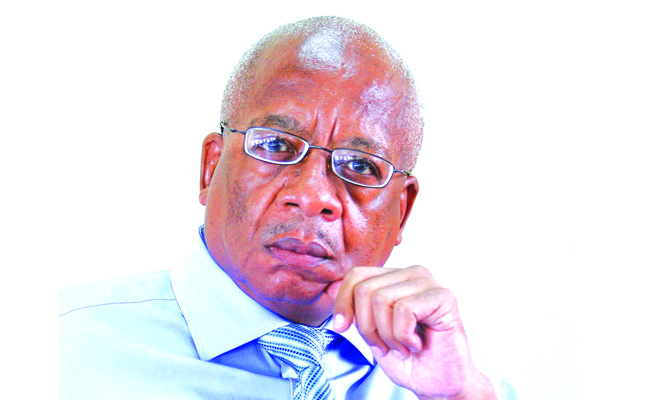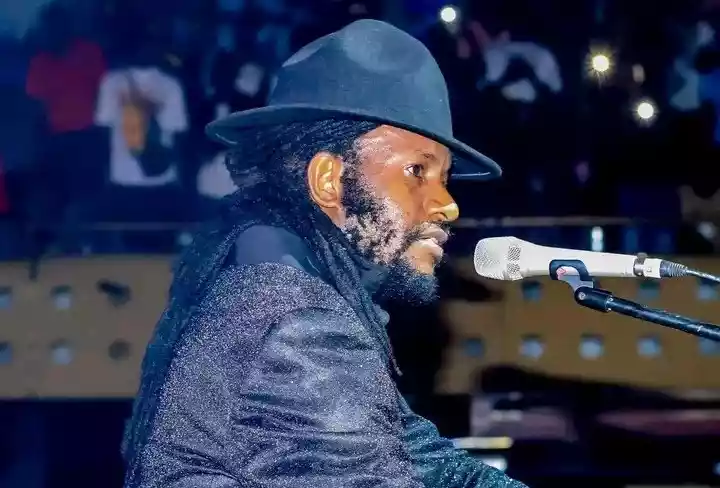
Little did I know when I posted a picture on Facebook on Wednesday this week a message reading, “With Leslie Gwindi and Sydney Mtsambiwa at my niece Nellie Tutani’s burial”, that its impact would go beyond family circles and elicit powerful and positive responses from all over the world, raising other related issues.
echoes: CONWAY TUTANI

Familiarity blinded me to that Nellie was much more than the little girl I grew up knowing. Little did I know that her reputation went far and wide. Doesn’t the Bible say no prophet is accepted in his hometown?
All these years, many people assumed she was my sister because of, so I was told, the resemblance and the fact that she was a couple of years younger than me. I had long stopped correcting them because you can’t go over it again and again that her father was my father’s elder brother’s son and her great-grandfather was my grandfather.
Tendayi Msemburi wrote: “She was my senior at St Ignatius College and fellow Mbarean … ” This was shortly after St Ignatius, one of the best schools in pre-independent Zimbabwe, became co-educational, making Nellie among the first female students there. Maybe that’s where that spirit of keeping on re-inventing herself came from. Having acquired a Bachelor of Business Studies degree from the University of Zimbabwe, she was employed at various organisations for a couple of years and then branched out on her own because she was an entrepreneur at heart, but that did not stop her from Bible training in the United Kingdom to become a pastor in her own right.
And for those not in the know, Mbarean is a proud reference to one rooted in and/or steeped in the values of Mbare township, formerly Harare (translated as a place where people don’t sleep). Mbare was the place to be in racially segregated Rhodesia because of the community spirit and vibrant culture. It was the pacesetter and trendsetter in every way as blacks did things for themselves in spite of and despite of racism. Those who now associate Mbare with crime and grime — and justifiably so — ought to know this rich background.
You don’t only fall in love with people — you can also fall in love with places. No wonder “Ole Blue Eyes” Frank Sinatra’s song New York, New York about his undying love for the biggest city in the United States, also affectionately nicknamed The Big Apple, and his memorable and eternal rendition of that as captured in the lyrics: “Start spreading the news, I’m leaving today/ I want to be part of it, New York, New York … I wanna wake up, in a city that doesn’t sleep/ And find I’m king of the hill, top of the heap … If I can make it here, I’m gonna make it anywhere/ It’s up to you New York, New York!”
Well, like New York, Mbare was the launchpad for prominent people like Herbert Murerwa, Gibson Mandishona, Joyce Jenje-Makwenda and the late Simangaliso Tutani, to mention only a few. That’s why true-blue Mbareans like Msemburi become sentimental, not just empty sentiment. There was a lot of inspiration, resulting in a lot of achievement coming out of that place — a far cry from the sprawling shanty town it has been reduced to with ruling party extortionists having a free rein, trying to silence not only an entire community, but the entire nation because the country has been captured by a self-serving elite. Let’s not allow politicians to rob us of this humanity that racist Rhodesia failed to destroy when it tried to reduce blacks to drawers of water and hewers of wood. Now we see the emergence of that servitude through plundering of national resources for the benefit of a tiny few. They can take everything else — like our due share of diamonds, our schools and our hospitals, like they are doing with impunity and immunity —but not our humanity and dignity.
- Chamisa under fire over US$120K donation
- Mavhunga puts DeMbare into Chibuku quarterfinals
- Pension funds bet on Cabora Bassa oilfields
- Councils defy govt fire tender directive
Keep Reading
War veterans’ leader Christopher Mutsvangwa also paid his tribute, saying: “Sorry to hear of Nellie’s death. We grew up together as families in Marirangwe (where the Tutani family farm is) … bonded again in Free Zimbabwe courtesy of her late sister (Tsitsi), who was a courageous fellow war veteran-turned-senior police officer. Nellie was always concerned with the welfare of the late sister’s children. MHSRIP.” Such a political and personal perspective can only come from one who knew her. And if it’s coming from Mutsvangwa, it cannot be exaggerated because this guy can throw punches without fear or favour, not just because he has been my personal friend for decades since our student days at university and remains so.
Continued Mutsvangwa: “Tutanis: How a family has been so buffeted by tumultuous political events of the last half century . . . Conway, you are always the literary man.” Well, as usual, you are not a revisionist, Mutsvangwa, as quite a number of Tutanis answered the call to arms, not only because there was some expiation to do because of people being involved on both sides of the war. Maybe it was embedded or seared in the psyche of the clan going by what my late father wrote in 1990 about his own father, Reverend Samuel Zondi Tutani, Nellie’s great-grandfather, who arrived in this country in 1893 from the Eastern Cape, South Africa, among the first Wesleyan Methodist Church missionaries: “He was a powerful preacher, but at the same time a nationalist.” Nellie was also a preacher of the Word and a strong Pan-Africanist, so was her late first cousin, Nothando Tutani, who, besides being of deep Christian faith, was the first female deputy director of the Central Intelligence Organisation.
That said, with hindsight, referring to Nellie as my niece does not exactly do justice to how it was. That’s because in African custom, she is actually as good as my own blood daughter in that she was the daughter of the first born of my father’s second oldest brother. Get it? To Europeans, her father was my first cousin, making her a second cousin to me after which it becomes second cousin removed, but there are no such impersonal terms in African parlance. You can be older than a person you relationally refer to as your father or mother, and younger than what you call your son, daughter or grandchild.
We blacks make relatability — the way in which two or more people are connected or related — simple, straightforward and meaningful. You don’t have to draw a family tree to make it comprehensible. Maybe it’s because African society has not been as stratified by class as much as other societies. The ugly face of classism is only beginning to be embedded now, what with the Head of State himself reportedly buying his wife a diamond ring for a cool $1,4 million? The extent of materialism is sickening, to say the least. No wonder the social fabric has been the first and biggest casualty. If you go on such a mad rush of acquisitiveness, something gotta give as we are seeing with more bond notes coming.
Yes, there is nothing as constant as change with the rate of social change increasing exponentially, but let’s spare our relational terms from this because they remain the best. I am not being Afrocentric about this; or spitefully lashing out at Western-imposed sanctions.
So I will say what I should have posted in the first place: “With Leslie Gwindi and Sydney Mtsambiwa at my daughter Nellie’s burial.”
Rest in eternal peace, my daughter Nellie.
lConway Nkumbuzo Tutani is a Harare-based columnist. Email: [email protected]











